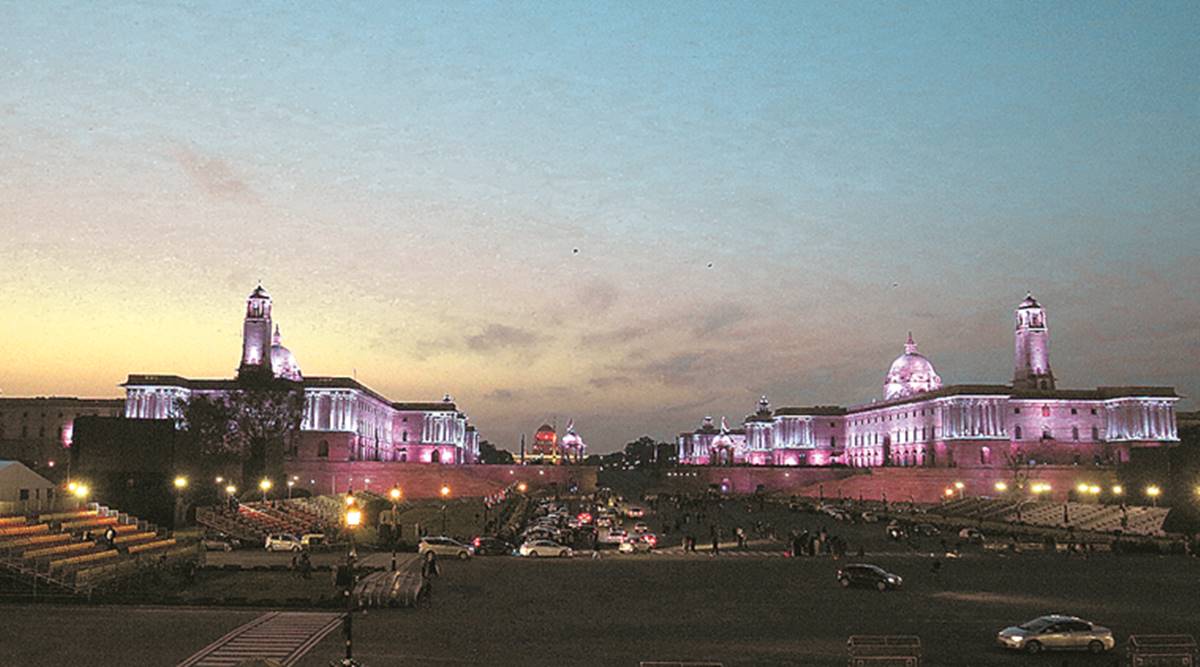 Justice Khanwilkar remarked that due process is part of rule of law and that the allegation is that the government is following rule by law and not rule of law.
Justice Khanwilkar remarked that due process is part of rule of law and that the allegation is that the government is following rule by law and not rule of law.The Centre Wednesday told the Supreme Court that there was no arbitrariness or favouritism in the selection of a consultant for the proposed Central Vista redevelopment project comprising a new Parliament and central secretariat building.
Solicitor General Tushar Mehta told a bench of Justices A M Khanwilkar, Dinesh Maheshwari and Sanjiv Khanna, which is hearing petitions challenging the project, that there was no element of personal subjectivity in the selection and that wide choice was given to bidders.
He pointed out that the petitioners before the court were public interest litigants and not any contesting consultant who claims they would have qualified if they had more time.
The bench queried why the bid participants were required to have past experience in India, and added this limited it to only Indian consultants. Mehta replied that the stipulation was for the benefit of the project and pointed out that joint ventures were not allowed as such ventures often lead to arbitration claims.
Mehta submitted that there was no abdication of duty in the selection of a consultant, and that every stakeholder participated in the process and gave their suggestions. He said the argument that the government could have adopted a better process cannot be a sufficient ground to scrap the project. The bench said the question of appointment of consultant should not arise unless the design is very atrocious.
The senior law officer contended that the petitioner has not pointed out any Constitutional or statutory requirement that the project can be carried out only in pursuance of a law. They have only offered an alternative method which, even if better, cannot be a ground to scrap the project, he said.
Mehta said that according to the petitioners, there should have been some referendum of sorts on whether a new Parliament building is needed. However, the participative democracy under the Indian Constitution is different and is representative participation that is envisaged, he said.
In a representative democracy, the government functions through the council of ministers which is answerable to the Parliament, which in turn is accountable to the people, he said.
The decision for the redevelopment project was taken by a competent authority and there are no allegations of colourable exercise of power and the decision is not atrocious, he contended.
Opposing the petitioners placing reliance on some foreign judgments to bolster their case, Mehta said there is a recent trend to invoke Constitutional morality and due process clause from the USA in every matter. The Indian Constitution does not envisage due process, he said.
Justice Khanwilkar remarked that due process is part of rule of law and that the allegation is that the government is following rule by law and not rule of law. To this, Mehta said rule of law in the Indian context would mean adherence to the country’s Constitution and law. “Their argument of due process is an extension of substantive due process of USA. We need not deviate from our Constitution,” he said, adding that the country has its own jurisprudence including Article 14 which covers non-discrimination, non-arbitrariness, etc. He pointed out that law and Constitutional values evolve differently in societies depending on their social values.